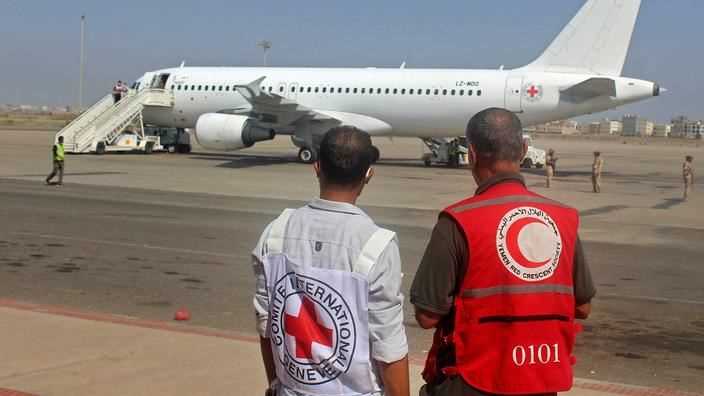The airport in Sana’a, the rebel-held capital of Yemen, can no longer accommodate planes from humanitarian organizations and the UN due to airstrikes by the Saudi-led military coalition, said Tuesday (December 21st). an airport official.
Read alsoYemen threatened with implosion after seven years of war
The coalition has intervened in Yemen since 2015 to support government forces against the Houthis, rebels backed by Riyadh’s great rival, Iran. The Houthis captured the capital Sana’a in 2014, unleashing a war that sparked one of the world’s worst humanitarian crises. Because of the coalition raids targeting the rebels, “the airport is no longer able to receive planes from the United Nations and international humanitarian organizationsThe official, who requested anonymity, told AFP. He called on the UN to “put an end to»Raids so that the airport can operate again.
Raids “in accordance with international law”
On Monday evening, the coalition claimed to have launched “precise and limited airstrikes targeting legitimate military targets at Sana’a International Airport“. “The operation was carried out in response to the threat and the use of airport infrastructure to launch cross-border attacks“, She added in a statement, quoted by the official Saudi agency SPA. Coalition forces targeted six targets at the airport, including sites intended for “manage trapped drone attacks“And”train terrorist elementsTo these devices, she added. According to the coalition, these raids are not likely to “affect operational capacities“From the airport and are”in accordance with international humanitarian law“.
While the capital Sana’a, like much of northern Yemen, is under rebel control, Saudi Arabia remains in control of all the airspace of its poor and divided neighbor. Civilian planes were already banned at Sana’a airport, only humanitarian flights were authorized by the Saudis, 80% of the Yemeni population depending on international aid. According to the UN, the war in Yemen will have caused the death of 377,000 people by the end of the year 2021, including around 227,000 deaths due to the indirect consequences of the conflict, such as lack of clean water, hunger and diseases.
